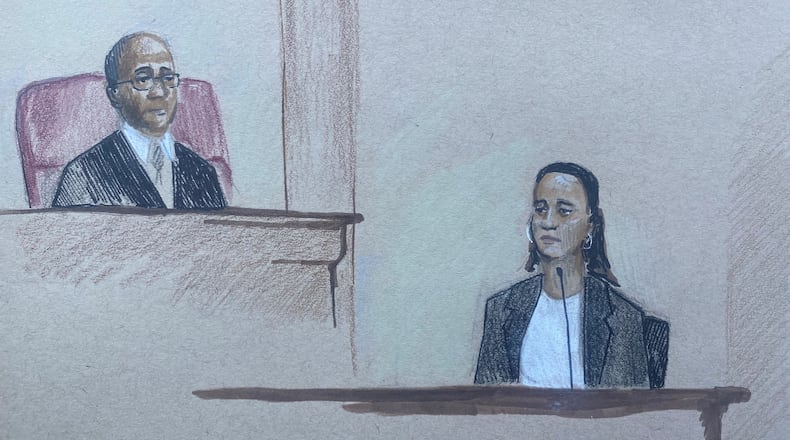Nine days before Pastor Mitzi Bickers was set to close on a lakefront home in June 2011, the then-director of human services for the city of Atlanta needed to come up with nearly $300,000 to fulfill the sales agreement.
But the cash wasn’t part of a mortgage on the property nor were the funds in her bank accounts, an auditor for the U.S. Attorney’s Office testified in federal court Monday. Bickers, who at the time made about $60,000 a year from her Atlanta City Hall job, had less than $7,000 in the bank, auditor Adrienne Richardson said.
In a little over a week, across a series of deposits and wire transfers, Bickers pulled the money together to close on the $775,000 Lake Spivey home, which features a pool and shelters for boats and jet skis.
Federal prosecutors on Monday continued to build their case of how Bickers was at the center of an Atlanta City Hall corruption scandal that became public in 2017 and engulfed then-Mayor Kasim Reed’s administration in the final year of his second term. Bickers is accused of receiving $2 million in bribes to help steer some $17 million in taxpayer-funded work from 2010 to 2014 to two city contractors.
Monday was the third full day of testimony in Bickers’ public corruption trial as prosecutors continued to detail the movement of money between the contractors and Bickers.
Bickers had no formal role in city contracting, but prosecutors allege Bickers had influence at City Hall after working as a political consultant who helped Reed win his first run for mayor in 2009.
In 2011, prosecutors allege Bickers used multiple bank accounts for herself and her companies to execute dozens of transactions involving hundreds of thousands of dollars to purchase the Henry County residence.
Bickers is accused of receiving or depositing about $508,000 in her personal and business accounts during the first half of 2011. Only about about $16,000 was from her city salary, according to Richardson. Some $350,000 that appeared in Bickers’ bank accounts came in cash and tens of thousands more came from wires sent by the two contractors.
The scheme outlined by prosecutors involved Elvin “E.R.” Mitchell Jr. and Charles P. Richards Jr. paying Bickers bribes to secure lucrative city business. After Mitchell received more than $1 million from the city for emergency snow removal during a January 2011 winter storm, he withdrew $390,000 in cash. In the days that followed, Bickers deposited about $293,000, the auditor, Richardson, testified.
Richardson said she examined thousands of financial records tracing money from the city for the work the contractors did, and from there to Bickers, her companies and associates. Richardson’s testimony was limited to 2011, though prosecutors said she is likely to return to the stand later as the government outlines its case.
Witnesses on Monday also included a former girlfriend of Bickers’, Shedrieka Poole, who said the pastor typically conducted transactions in cash and supported her financially. Poole said Bickers had her start a company, Chateau Land, for real estate investments. Prosecutors said the company was a vehicle for the alleged bribery scheme.
Sharon Patterson, a former Henry County resident and real estate agent, sold Bickers the Lake Spivey home. Bickers purchased it for $775,000 in June 2011, putting more than $500,000 down, including the nearly $300,000 Bickers secured in the days before closing, the government said. Bickers financed the rest — more than $250,000 — through a personal loan from Patterson.
Asked by a prosecutor why Bickers chose a seller-financed mortgage, Patterson said: “My understanding was she would not be able to qualify for the loan.”
Asked by defense attorney Marissa Goldberg if it was unusual for a buyer to bring a lot of money to a closing, Patterson said it wasn’t.
Bickers repaid Patterson as agreed in 2012.
Keep Reading
The Latest
Featured



